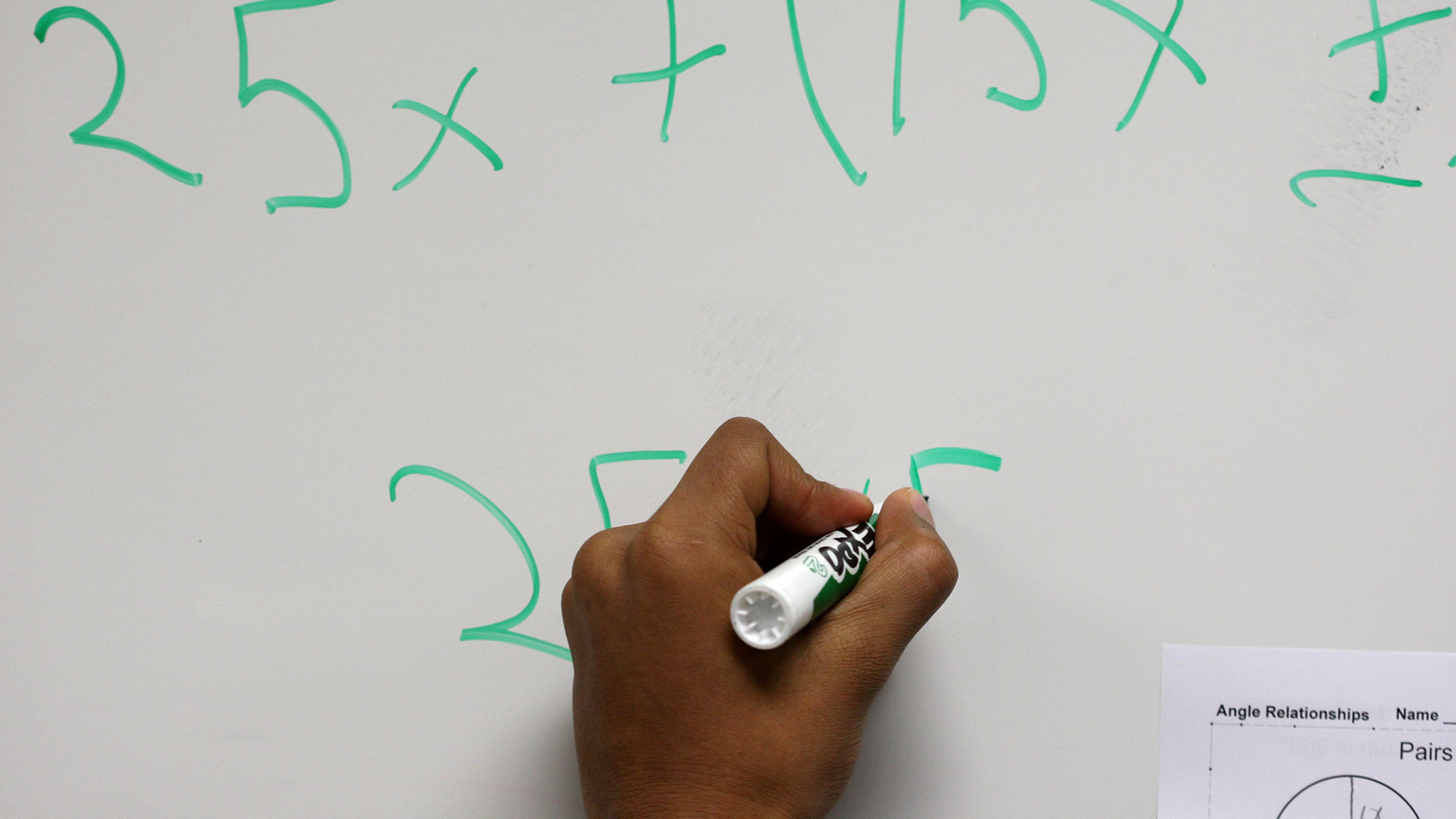We expect kids to be on grade level in math. A lot of them aren’t.

In listening sessions with state leaders over the last few weeks, Georgia teachers voiced concerns about a test-based accountability system that demands all students be at the same place at the same time, no matter where they started.
(The final of three listening sessions is going on right now with Gov. Brian Kemp in Lawrenceville. My AJC colleague Ty Tagami is there.)
Whether students begin three years behind or three years ahead, the main goal is grade-level performance on the Georgia Milestones exams given each spring.
Teachers say the tests don't allow them to move above or below grade level to respond to the individual needs of their students. A new national report agrees and warns the fixation on grade-level performance hinders math achievement in Georgia and the rest of the country.
The report, "The Iceberg Problem: How Assessment and Accountability Policies Cause Learning Gaps in Math to Persist Below the Surface…and What To Do About It," shows that millions of students arrive at middle school with cracks in their math foundations.
Only 40% of U.S. fourth graders are proficient in math, based on the 2017 National Assessment of Educational Progress. And that rate doesn't improve over time.
In Atlanta, math proficiency falls from 31 percent in fourth grade to 19 percent in eighth grade, a pattern seen in most urban districts.
"In every single state, proficiency levels drop in math between the fourth grade and the eighth grade," said Joel Rose, co-founder and CEO of New Classrooms Innovation Partners, which released the study. "This is not the case in reading. Between the fourth and eighth grades, reading proficiency levels actually go up or stay flat in almost two-thirds of all states. Math is different."
Because math is cumulative, students can’t calculate the area of a circle if they never grasped exponents or figure out percentages if they didn’t master decimals. Lagging math skills will undermine their ability to learn advanced concepts in sixth grade and beyond.
Math teachers realize there are kids in their classes below grade level and do what they can to catch up those students. But federal and state policies telegraph that, faced with meeting a student’s needs or covering grade-level material, a teacher should concentrate on grade-level instruction, Rose said.
As Georgia teachers told lawmakers at the listening sessions, they’re under pressure to ensure their students pass the end-of-the-grade tests.
“They are going to teach what is being tested," said Rose. "And while the collective attention of educators is focused on how students are performing on grade-level assessments, the unfinished learning from prior years is actually accumulating below the surface, hidden from the view, making it harder for students to ultimately graduate with the skills they need to succeed."
The standard instructional path works for a third of students who learn fifth grade math in fifth grade and sixth grade math in sixth. “They don’t really fall behind all that much,” said Rose. “For everyone else, if they come off that standard path, there aren’t many paths for them to get back on. Schools just can't keep doing this and miraculously expect results to turn around.”
The risk in abandoning grade-level standards is that schools exile poor and minority students to remedial math tracks, said civil rights attorney Shavar Jeffries.
Speaking on a panel about the "Iceberg" findings, Jeffries said, "The history of this country is that we don't expect much from certain groups of kids. Frankly, we needed an accountability framework to say that was not acceptable."
Conceding the general accountability framework doesn't align with kids who aren't on grade level, Jeffries endorsed targeted and evidence-based programs for those kids. "But grade-level proficiency has to be the ultimate goal," he said.
The report calls a testing pilot getting underway in Georgia "the most promising approach to mitigate the Iceberg Problem."
Approved by Secretary of Education Betsy DeVos in July, the pilot will entail three formative assessments over the school year with items from multiple grade levels. The report says: "If successfully executed, Georgia's approved plan holds the most promise for integrating comprehensive measures of learning growth while still generating grade level performance."


